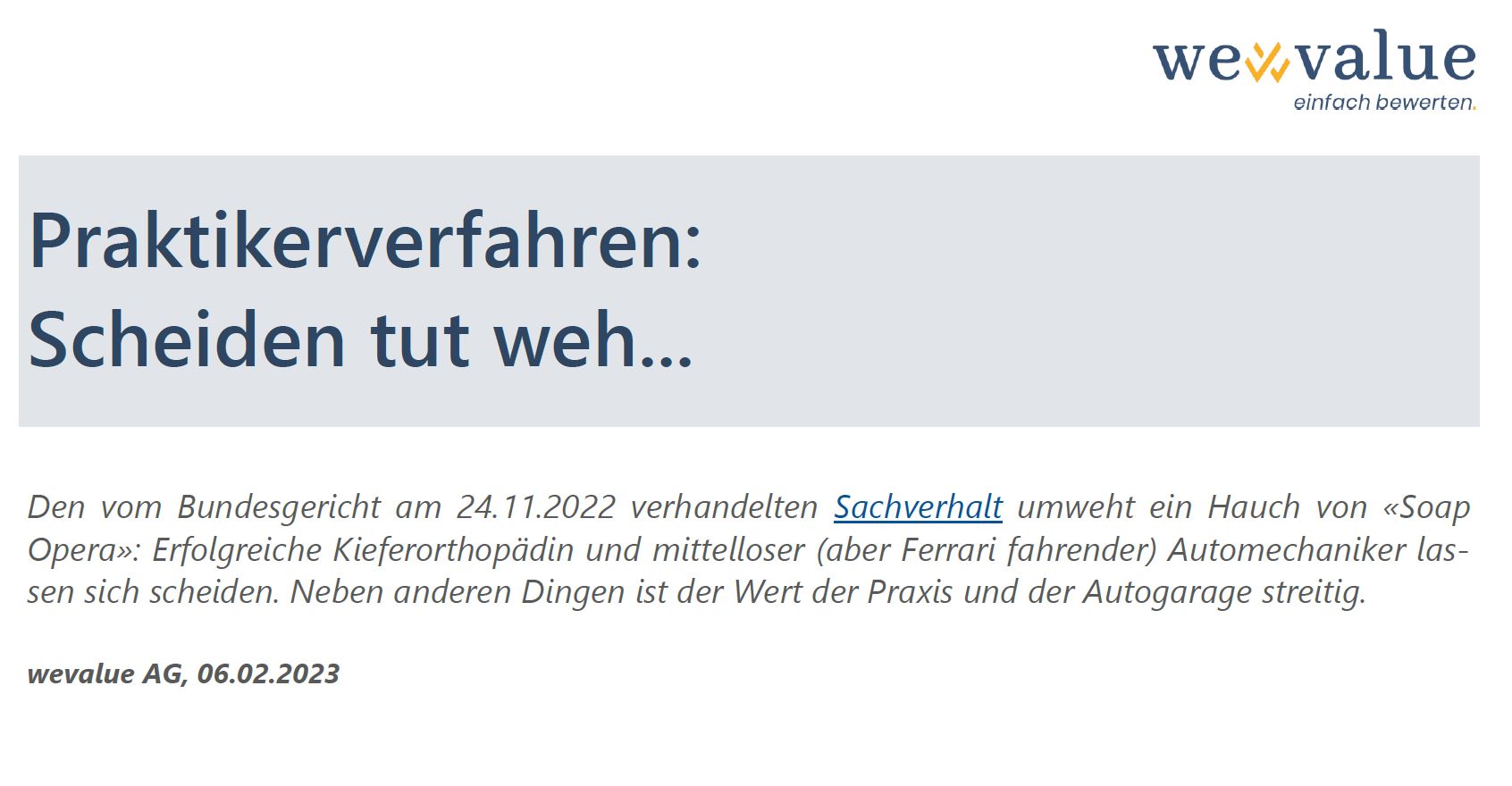Practitioner procedure: Divorcing hurts…

The facts of the case heard by the Federal Supreme Court on 24.11.2022 have a touch of “soap opera” about them: a successful orthodontist and a penniless (but Ferrari-driving) car mechanic are getting divorced. Among other things, the value of the practice and the car garage are in dispute.
Facts
The valuations submitted in the lower courts result in a compensation obligation of the wife to her husband of first TCHF 217 (Cantonal Court), then TCHF 211 (Supreme Court). Before the Federal Supreme Court, the complainant requested that this be assessed at only TCHF 7.
In essence, the Federal Supreme Court had to answer the question whether and to what extent the personal nature of the orthodontic company was sufficiently taken into account in its valuation. Specifically, this company was valued using the practitioner method, whereby – in order to take this very circumstance into account – the net asset value was set at 90% and the capitalized earnings value at 10%.
Personal components are to be taken into account
The Federal Supreme Court has rejected this approach with remarkable clarity. First of all, it is stated that in the case at hand the market value is to be determined (Art. 211 ZGB). Furthermore, it is correctly stated that a sale of the company is assumed. Thus, only the transferable earning power is to be taken into account in the valuation. The personal components may not be taken into account.
Practical procedure methodologically inadmissible and arbitrary
As a result, the Federal Supreme Court rejects the practical method for the purpose of determining the market value, because this method “determines the earning capacity value, however, including the services of the entrepreneur, which is why it appears to be unsuitable in the present context”. To assume only an approximate amount for the enterprise is “methodologically inadmissible” and the market value thus determined is “arbitrary” (E.3.3.4).
The ruling has significance beyond the decided case for all situations in which the fair market value of a personal enterprise is to be determined. These are legally required valuations (property, inheritance and corporate law), but also tax-relevant situations (such as the unplanned realization of hidden reserves) or valuations based on a shareholders’ agreement (ABV). It is probably not appropriate to determine the fair market value using the practical method.
Liquidation as an alternative to be examined
How concretely the only transferable earning power can be determined and valued, we have explained elsewhere. The fact that the Federal Supreme Court also refers to this in its ruling pleases and confirms us.
In addition, we would like to point out once again that the liquidation value should always be calculated as the control value, especially in the case of personal companies. If nothing remains of the company after deduction of the entrepreneur, liquidation will have to be assumed for the valuation.

